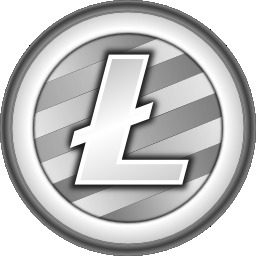比较 Bitcoin Cash (BCH) 与 Litecoin (LTC) Coin
In the evolving landscape of digital currencies, Bitcoin Cash (BCH) and Litecoin (LTC) have carved a noteworthy reputation for themselves. As both aim to ease daily transactions with faster speed and lower costs, it's essential to delve into their differences and similarities, exploring their unique attributes and potential for future growth.
User rating
Cryptogeek rating
关于
|
比特币现金是Roger Ver在2017年提出的最受欢迎的比特币硬分叉,用于解决比特币网络交易缓慢的问题。这个想法是创建一个更好的支付方式的比特币版本,而原始比特币被更多地视为价值存储。比特币现金的块大小比比特币大,因此这种货币的交易更快,更便宜。另一方面,它需要更多资源来运行比特币现金的整个节点,这使其更易于集中化。比特币现金迅速吸引了大量追随者,并成为加密货币市场的重要组成部分。 BCH可在许多交易所使用,并受到众多加密服务的支持。自项目启动以来,它从未离开过前十名。
|
Litecoin由Google员工Charlie Lee于2011年创建。目前,按市值计算,该加密货币是最大的加密货币之一。 Litecoin被创建为比特币区块链的首批分支之一。同样,可以肯定地说莱特币是最早的山寨币之一。比特币基于SHA-256算法,而莱特币则采用更轻便的scrypt算法。
|
类型
成立日期
国家
|
International
|
International
|
语言
团队
协议
|
Public blockchain
|
Public blockchain
|
当前价格(美元)
历史最高(美元)
价格变动(24小时)
交易量(24小时)
|
6827043.98445
|
39548695.14662
|
哈希值
最大供应量
|
21000000.00000
|
84000000.00000
|
总供应
循环供应
|
19916056.14665
|
76223564.48347
|
交易速度/区块生成时间
手续费
挖矿盈利能力
算法
证明类型
完全放心
智能合约地址
开采的硬币总数
|
18462627.14680
|
65464957.99676
|
正在交易
块奖励
|
6.250000000000
|
12.500000000000
|
封锁时间
| 公司 |
|
|
| User rating |
User rating
4.4 / 5
7 用户评论
|
User rating
5 / 5
5 用户评论
|
| Cryptogeek rating |
Cryptogeek rating
4 / 5
|
Cryptogeek rating
3.4 / 5
|
| TrustScore
其如何运作
|
TrustScore
4.19 / 5
|
TrustScore
3.98 / 5
|
| 关于 |
比特币现金是Roger Ver在2017年提出的最受欢迎的比特币硬分叉,用于解决比特币网络交易缓慢的问题。这个想法是创建一个更好的支付方式的比特币版本,而原始比特币被更多地视为价值存储。比特币现金的块大小比比特币大,因此这种货币的交易更快,更便宜。另一方面,它需要更多资源来运行比特币现金的整个节点,这使其更易于集中化。比特币现金迅速吸引了大量追随者,并成为加密货币市场的重要组成部分。 BCH可在许多交易所使用,并受到众多加密服务的支持。自项目启动以来,它从未离开过前十名。
|
Litecoin由Google员工Charlie Lee于2011年创建。目前,按市值计算,该加密货币是最大的加密货币之一。 Litecoin被创建为比特币区块链的首批分支之一。同样,可以肯定地说莱特币是最早的山寨币之一。比特币基于SHA-256算法,而莱特币则采用更轻便的scrypt算法。
|
| 类型 |
类型
coin
|
类型
coin
|
| 成立日期 |
成立日期
2017
|
成立日期
2011
|
| 国家 |
国家
International
|
国家
International
|
| 语言 |
语言
没有数据
|
语言
没有数据
|
| 团队 |
团队
Public
|
团队
Public
|
| 协议 |
协议
Public blockchain
|
协议
Public blockchain
|
| 当前价格(美元) |
当前价格(美元)
579.0661
|
当前价格(美元)
116.2698
|
| 历史最高(美元) |
历史最高(美元)
4355.6200
|
历史最高(美元)
375.2900
|
| 价格变动(24小时) |
价格变动(24小时)
-2.61
|
价格变动(24小时)
-4.56
|
| 交易量(24小时) |
交易量(24小时)
6827043.98445
|
交易量(24小时)
39548695.14662
|
| 哈希值 |
哈希值
2653000000
|
哈希值
165730
|
| 最大供应量 |
最大供应量
21000000.00000
|
最大供应量
84000000.00000
|
| 总供应 |
总供应
没有数据
|
总供应
没有数据
|
| 循环供应 |
循环供应
19916056.14665
|
循环供应
76223564.48347
|
| 交易速度/区块生成时间 |
交易速度/区块生成时间
116
|
交易速度/区块生成时间
56
|
| 手续费 |
手续费
没有数据
|
手续费
没有数据
|
| 挖矿盈利能力 |
挖矿盈利能力
low
|
挖矿盈利能力
low
|
| 算法 |
算法
SHA-256
|
算法
Scrypt
|
| 证明类型 |
证明类型
PoW
|
证明类型
PoW
|
| 完全放心 |
完全放心
没有数据
|
完全放心
没有数据
|
| 智能合约地址 |
智能合约地址
没有数据
|
智能合约地址
没有数据
|
| 开采的硬币总数 |
开采的硬币总数
18462627.14680
|
开采的硬币总数
65464957.99676
|
| 正在交易 |
正在交易
yes
|
正在交易
yes
|
| 块奖励 |
块奖励
6.250000000000
|
块奖励
12.500000000000
|
| 封锁时间 |
封锁时间
600
|
封锁时间
150
|
社交
网站
Twitter
优点
|
Scalable
Highly Efficient
Easy To Acquire
|
Open-source Network
Decentralized
Transactions Fees
|
缺点
|
Branding Issues
|
Has some branding issues
|
评分
| User rating |
User rating
4.4 / 5
7 用户评论
|
User rating
5 / 5
5 用户评论
|
| Cryptogeek rating |
Cryptogeek rating
4 / 5
|
Cryptogeek rating
3.4 / 5
|
| 优点 |
优点
Scalable
Highly Efficient
Easy To Acquire
|
优点
Open-source Network
Decentralized
Transactions Fees
|
| 缺点 |
缺点
Branding Issues
|
缺点
Has some branding issues
|
基于 7 条用户评论, Bitcoin Cash (BCH) 条用户评分为 4.4 条。 基于 5 位用户的评论, Litecoin (LTC) 位用户的评分是 5 位。
We also calculate the special Cryptogeek TrustScore based on the characteristics of each coin.
选择其他公司
Thus, after comparing Bitcoin Cash and Litecoin's unique attributes, it's clear that while both offer their distinct advantages, the choice between the two depends largely on the individual's specific needs and preferences. As this dynamic industry continues to grow, each of these digital currencies will undoubtedly continue to evolve and refine their functionalities, potentially reshaping their competitive geography.
In the evolving landscape of digital currencies, Bitcoin Cash (BCH) and Litecoin (LTC) have carved a noteworthy reputation for themselves. As both aim to ease daily transactions with faster speed and lower costs, it's essential to delve into their differences and similarities, exploring their unique attributes and potential for future growth.

